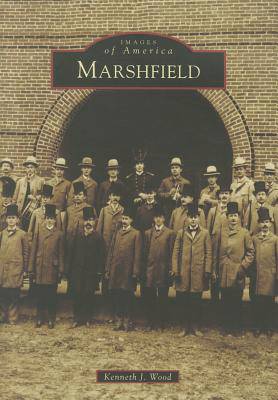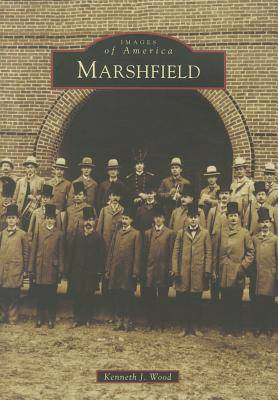
Bedankt voor het vertrouwen het afgelopen jaar! Om jou te bedanken bieden we GRATIS verzending (in België) aan op alles gedurende de hele maand januari.
- Afhalen na 1 uur in een winkel met voorraad
- In januari gratis thuislevering in België
- Ruim aanbod met 7 miljoen producten
Bedankt voor het vertrouwen het afgelopen jaar! Om jou te bedanken bieden we GRATIS verzending (in België) aan op alles gedurende de hele maand januari.
- Afhalen na 1 uur in een winkel met voorraad
- In januari gratis thuislevering in België
- Ruim aanbod met 7 miljoen producten
Zoeken
Omschrijving
Marshfield owes its existence to the twin factors of railroads and timber. The first permanent white settlers, the Rivers brothers, built a two-room hotel in Marshfield because they heard that Wisconsin Central Railroad crews would travel through on the way to Ashland, Wisconsin. The brothers had a saloon, a sleeping room with bunk beds, and food ready and waiting when the railway crews arrived in 1872. Marshfield's central location made it a crossroads for up to five railroad lines, with 1,000 freight cars and 28 passenger trains passing through per day in 1893. Timber led to the establishment of sawmills, stave and heading mills, and shingle and veneer factories. As the timberland was clear-cut, the townspeople turned to agriculture. New industries appeared, including dairies, a pickle factory, a brewery, and several cigar factories. Today, one of the dominant industries is health care, with extensive medical research being conducted at the Marshfield Clinic.
Specificaties
Betrokkenen
- Auteur(s):
- Uitgeverij:
Inhoud
- Aantal bladzijden:
- 128
- Taal:
- Engels
- Reeks:
Eigenschappen
- Productcode (EAN):
- 9780738588728
- Verschijningsdatum:
- 20/02/2012
- Uitvoering:
- Paperback
- Formaat:
- Trade paperback (VS)
- Afmetingen:
- 163 mm x 231 mm
- Gewicht:
- 249 g

Alleen bij Standaard Boekhandel
+ 69 punten op je klantenkaart van Standaard Boekhandel
Beoordelingen
We publiceren alleen reviews die voldoen aan de voorwaarden voor reviews. Bekijk onze voorwaarden voor reviews.









